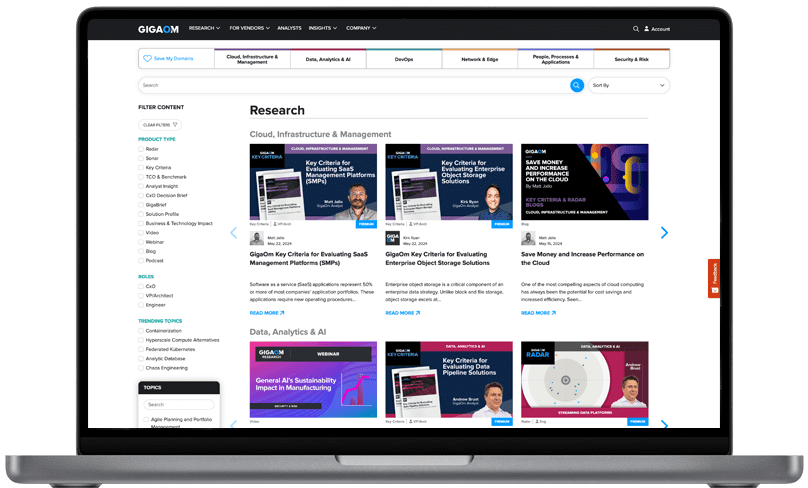Table of Contents
- Summary
- The rise of big data
- Barriers to adoption
- Managed service providers to the rescue
- Managed service provider use cases: pro and con
- What services should customers expect from managed service providers?
- Big data technology outlook
- Key takeaways
- About Mike Kavis
- About GigaOm
- Copyright
1. Summary
The vast amounts of data that companies are collecting, the continuous decrease of storage costs over the past several years, and the technological advancements with cloud computing have made big data initiatives much more feasible and quicker-to-market than past data warehousing initiatives. Unfortunately for many companies, the complexity of scaling Hadoop clusters, NoSQL databases, and other big data technologies has been challenging because they lack in-house skills. After finding that the DIY model is not driving the anticipated return on investment (ROI), CIOs are starting to consider cloud-based managed services as a way to achieve a better, quicker ROI on their big data initiatives.
Big data is well-suited for cloud environments because of the cloud’s ability to expand and contract almost instantly – provisioning more compute resources when process requests are generated and de-provisioning those same resources when the work is done. Emerging managed big data services greatly increase time-to-value for big data initiatives because organizations don’t need to acquire the necessary talent for implementing NoSQL and big data technologies like Hadoop or for navigating complex cloud environments.
The trick to leveraging managed big data services is determining which projects are good candidates for outsourcing and then finding a service provider that can deliver immediate value while also reducing administrative risks and infrastructure costs. This report will highlight for CIOs, CTOs, directors and VPs of IT, data scientists, and data analysts the value proposition of managed big data services and provide a glimpse of where this space is heading in the next three to five years.
Key findings include:
- Managed big data services accelerate big data deployments so customers can focus on the analytics and extract value from their big data initiatives more quickly.
- Although NoSQL databases can handle big data’s increasing volume, velocity, and variety, skilled engineers to design and manage those databases are in short supply.
- Managed big data services often complement existing data warehouses or local database environments.
- Due to growth in mobile, clickstream, and internet of things (IoT) traffic, the big data market will experience significant growth over the next three to five years.
Thumbnail image courtesy of MicroWorks/Thinkstock.
